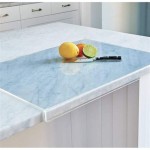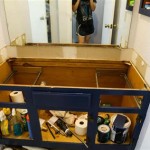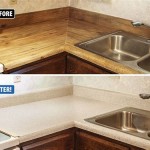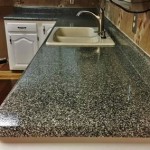Safe Cleaner For Quartz Countertops: Maintaining Beauty and Longevity
Quartz countertops have become a popular choice for homeowners due to their durability, aesthetic appeal, and relatively low maintenance requirements. These engineered stone surfaces are composed of natural quartz crystals combined with resins and polymers, resulting in a non-porous material that is resistant to stains, scratches, and bacteria. However, while quartz is robust, it's crucial to use appropriate cleaning methods and products to preserve its pristine appearance and prevent damage over time. Selecting the right cleaner is key to maintaining the beauty and longevity of quartz countertops.
Improper cleaning practices, such as using abrasive cleaners or harsh chemicals, can dull the surface, create a hazy film, or even cause discoloration. Therefore, understanding the composition of quartz countertops and the potential effects of various cleaning agents is essential for effective and safe maintenance. This article will explore safe cleaning options for quartz countertops, highlighting effective products and methods to ensure they remain a beautiful and functional part of the home.
Understanding the Composition of Quartz Countertops
To properly care for quartz countertops, a fundamental understanding of their composition is necessary. Quartz countertops are not 100% natural quartz. They typically consist of around 90-95% ground natural quartz and 5-10% resins, polymers, and pigments. This combination creates a surface far more durable and less porous than natural stone like granite or marble. The resin component of the countertop is the primary factor that determines its susceptibility to certain cleaning agents.
The resins used in quartz countertops are susceptible to damage from high pH substances and solvents. Abrasive cleaners can scratch the surface, leading to a dull appearance over time. Therefore, selecting cleaning products specifically formulated or known to be safe for quartz is paramount. Understanding which ingredients to avoid, such as bleach, strong acids, and abrasive particles, is a crucial first step in maintaining the countertop's integrity.
The non-porous nature of quartz means that it doesn't absorb liquids or harbor bacteria as easily as natural stone. This characteristic simplifies the cleaning process; however, it also means that any residue left on the surface from cleaning products will be more visible. Consequently, cleaners should be used sparingly, and the surface should be thoroughly rinsed and dried after cleaning to prevent buildup and streaks.
Safe and Effective Cleaning Agents for Quartz Countertops
Several cleaning agents are considered safe and effective for maintaining quartz countertops. These solutions are gentle enough to prevent damage to the resin components while still providing sufficient cleaning power to remove everyday spills and stains.
Warm Water and Mild Dish Soap: This is the most basic and often the most effective cleaning method for daily maintenance. A solution of warm water and a few drops of mild dish soap can remove most spills and messes without harming the quartz surface. It's essential to use a non-abrasive sponge or cloth and to rinse the countertop thoroughly with clean water after washing. Drying the surface with a clean, dry cloth will prevent water spots and streaks.
Specifically Formulated Quartz Cleaners: Numerous commercially available cleaners are specifically formulated for quartz countertops. These products are designed to be pH-balanced and non-abrasive, ensuring that they won't damage the surface. When selecting a quartz cleaner, carefully read the product label to ensure it is safe for use on engineered stone. It is always recommended to test the cleaner on an inconspicuous area of the countertop before applying it to the entire surface. Examples of good brand name cleaner would be Weiman Granite & Stone Daily Clean & Shine or Stone Care International Quartz Cleaner & Polish.
Isopropyl Alcohol: For stubborn stains or residue, isopropyl alcohol (rubbing alcohol) can be used. It is effective at dissolving grease and grime without harming the quartz surface. Apply the alcohol to the affected area, let it sit for a few minutes, and then wipe it clean with a damp cloth. Be sure to rinse the surface thoroughly with water afterward to remove any residual alcohol.
Vinegar (Use with Caution): While often touted as a natural cleaning agent, vinegar should be used with caution on quartz countertops. Vinegar is a mild acid, and prolonged or frequent exposure can potentially dull the surface over time. If using vinegar, dilute it significantly with water (a 1:1 ratio is recommended) and use it sparingly. Always rinse the surface thoroughly with water after cleaning with vinegar.
Glass Cleaner: For removing streaks and maintaining a shiny surface, a streak-free glass cleaner can be used. Spray a small amount of cleaner onto the countertop and wipe it down with a clean, dry microfiber cloth. This method is particularly effective for polishing the surface after cleaning with soap and water.
Avoiding Harmful Cleaning Agents and Practices
Certain cleaning agents and practices can cause irreversible damage to quartz countertops. Avoiding these harmful substances and methods is crucial for maintaining the countertop's appearance and preventing costly repairs.
Abrasive Cleaners and Scrub Pads: Abrasive cleaners, such as scouring powders, and abrasive scrub pads can scratch and dull the surface of quartz countertops. These products can remove the glossy finish, leaving the countertop looking hazy and worn. Always use non-abrasive sponges or cloths when cleaning quartz.
Strong Acids and Bases: Strong acids and bases, such as drain cleaners, oven cleaners, and toilet bowl cleaners, can etch or discolor quartz countertops. These chemicals can react with the resins in the countertop, causing permanent damage. Avoid using any cleaning products that contain these harsh chemicals.
Bleach: While quartz is non-porous and resistant to many stains, bleach can still damage the surface over time, especially if it is not properly diluted or rinsed. Prolonged exposure to bleach can lead to discoloration or weakening of the resin components. It is best to avoid using bleach on quartz countertops altogether.
Permanent Markers and Inks: While not cleaning agents, permanent markers and inks can be difficult to remove from quartz countertops. If these substances come into contact with the countertop, act quickly. Try using isopropyl alcohol or a specialized stain remover designed for engineered stone. Avoid scrubbing vigorously, as this can spread the stain or damage the surface.
Heat: Although quartz is heat-resistant, it is not heatproof. Placing hot pots and pans directly on the surface can cause thermal shock, leading to cracking or discoloration. Always use trivets or hot pads to protect the countertop from high heat.
Sharp Objects: While quartz is scratch-resistant, it is not scratch-proof. Avoid using sharp objects, such as knives or metal utensils, directly on the countertop's surface. Use cutting boards to prevent scratches and damage.
Regular maintenance and appropriate cleaning practices are essential for preserving the beauty and longevity of quartz countertops. By understanding the composition of quartz and using safe cleaning agents, homeowners can ensure that their countertops remain a stunning and functional part of their homes for years to come. Avoiding harsh chemicals, abrasive materials, and extreme temperatures will further protect the surface and prevent damage.
Addressing spills promptly is also essential. While quartz is stain-resistant, certain substances, such as red wine, coffee, and turmeric, can cause staining if left on the surface for extended periods. Wipe up spills immediately with a damp cloth to prevent discoloration.
For tougher stains, consider using a specialized quartz stain remover. These products are formulated to penetrate and lift stains without damaging the countertop. Always follow the manufacturer's instructions and test the product in an inconspicuous area first.
By following these guidelines, individuals can effectively maintain their quartz countertops, keeping them looking pristine and ensuring their long-term durability. Safe and informed cleaning practices are the key to protecting the investment and enjoying the beauty of quartz for many years.
In conclusion, properly maintaining quartz countertops involves a combination of gentle cleaning techniques, appropriate cleaning products, and preventative measures. Understanding the composition of quartz and the potential effects of various substances is paramount. By adopting safe cleaning practices, homeowners can ensure that their quartz countertops remain a beautiful and functional asset in their homes for years to come.

Granite Stone Daily Clean Shine With Disinfectant Weiman

Quartz Countertop Cleaner Polish Weiman

Granite Gold 24 Oz Quartz Clean Shine Countertop Cleaner And Polish Spray Gg0069 The Home

Weiman S Quartz 24 Fl Oz Citrus Liquid Cleaner And Polish 595 At Com

Hope S Perfect Quartz Countertop Cleaner Streak Free Marble Granite Counter 23 Fl Oz Pack Of 1 Wal Com

Stonepro Quartz Countertop Cleaner Formulated For

Hope S Perfect Quartz Countertop Cleaner Streak Free Marble Granite Counter 23 Fl Oz Pack Of 1 Wal Com

Quartz Power Cleaner Starter Kit Best For All

How To Clean Kitchen Countertops Reviews By Wirecutter

Daily Quartz Cleaner Granite Gold
See Also








